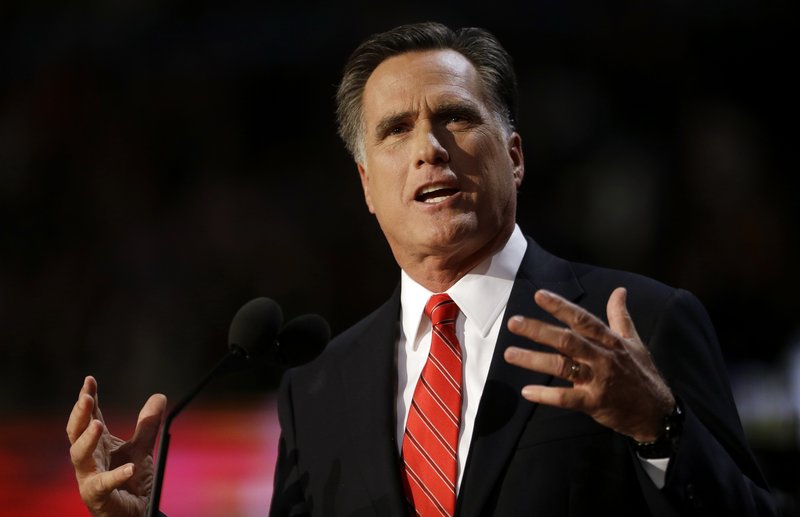The definition of “middle income” offered by Republican presidential candidate Mitt Romney last week seemed a bit extravagant to some Maine residents and politicians interviewed Friday and Saturday.
Romney was asked the question Friday during an appearance on ABC’s “Good Morning America.”
“Is $100,000 middle income?” asked host George Stephanopoulos.
“No,” replied Romney, who would be one of the wealthiest presidents in history if elected. “Middle income is $200,000 to $250,000 and less.”
He clarified later that he was referring to household, not individual, income.
Several Maine candidates for national office declined to specify what constitutes a middle class income. Maine residents interviewed were not so reluctant.
Letitia Hodgkins of Windham said $80,000 to $100,000 probably puts someone squarely in the middle.
“That’s in our world, not in some rich person’s world,” Hodgkins said.
August DeLisle, 22, a Portland scenery carpenter and recent graduate of the University of Southern Maine, said he lives on $20,000 a year and considers himself in the middle class, although not middle income, which he guessed averages around $100,000 a year.
Although he hasn’t offered a specific definition of “middle income,” President Obama’s goal of protecting tax cuts for the middle class and raising them on the wealthy would keep the cuts for households earning $250,000 or less.
Less than 5 percent of American households were expected to earn $200,000 or more in 2012, according to data from the Tax Policy Center.
Last week, the Census Bureau put the median household income in the United States in 2011 at $50,054, a figure that has declined since the start of the Great Recession. In 2009, the year the country emerged from the recession, the median household income was $52,195 and in 2007, the year before the financial crisis hit, the figure was $54,489.
In Maine, the median annual household income is substantially less: $46,933 in 2010. The state figure for 2011 won’t be released until December. Median means half of the household incomes are higher than that number and half are lower.
Maine candidates for national office declined to offer a specific figure for middle income.
“The truck drivers, nurses, and people who work with their hands I meet on the campaign trail would probably think $200,000 is a lot of money,” said Charlie Summers, Maine’s secretary of state and the Republican candidate for the Senate. “I view the middle class the same way the people all over Maine do: men and women who get up early to get their kids off to school, work hard all day, put dinner on the table, and then get up the next day to do it all over again.”
“Most Maine families would be shocked to learn that Mitt Romney considers annual middle-income to be in the $200,000 to $250,000 range,” said state Sen. Cynthia Dill of Cape Elizabeth, the Democratic Senate candidate. “This shows how desperately out of touch Mitt Romney is with the day-to-day reality of working Maine’s families, who must struggle just to make ends meet.”
Former Gov. Angus King, running as an independent for the Senate, said the standard of living for the middle class has fallen in recent years.
“In Maine, the middle class used to be the guy who worked hard at the mill and saved and might have been able to buy a motorcycle or snowmobile, or the family who was able to take a vacation once a year, or the small business-owner who finally sees her business turning a profit,” King said. “Unfortunately, now most Mainers live paycheck-to-paycheck and they are the middle class.”
Jon Courtney, the Republican challenger for the 1st District congressional seat, said fighting over the definition of middle income results in “cultural warfare” that only benefits “some elite Washington politicians.”
“$250,000 sounds like an awful lot of money to me,” he said. “Instead of fighting over a shrinking piece of the economic pie, we need to encourage job creators so we can all have more opportunity.”
“If Gov. Romney thinks $250,000 a year is middle class, I can’t imagine he has any idea of what working families are going through,” said Rep. Chellie Pingree, D-Maine, the 1st District incumbent. “I doubt he can even imagine what it’s like to struggle to pay a mortgage or try to afford to send your kids to college. It’s just stunning how completely out of touch with average Americans he is.”
Pingree is married to S. Donald Sussman, the majority shareholder of MaineToday Media, which publishes the Portland Press Herald/Maine Sunday Telegram.
“While I don’t think most Mainers would consider $200,000 middle income, at least both presidential candidates have said they don’t want to raise taxes on the middle class,” said Rep. Mike Michaud, D-Maine, who represents Maine’s 2nd District. Michaud’s opponent, state Sen. Kevin Raye, R-Perry, and Sen. Susan Collins, R-Maine, did not respond to requests for comment.
Back on the streets of Portland, Anne Marie Jendrasko laughed at Romney’s definition, but said politicians in general seem to not understand the lives of most Americans. She said fighting over a definition allows them to ignore the real issues.
“They are acting like children,” she said.
Staff Writer Beth Quimby can be contacted at 791-6363 or at:
bquimby@pressherald.com
Staff Writer Edward D. Murphy can be contacted at 791-6465 or at:
emurphy@pressherald.com
Send questions/comments to the editors.




